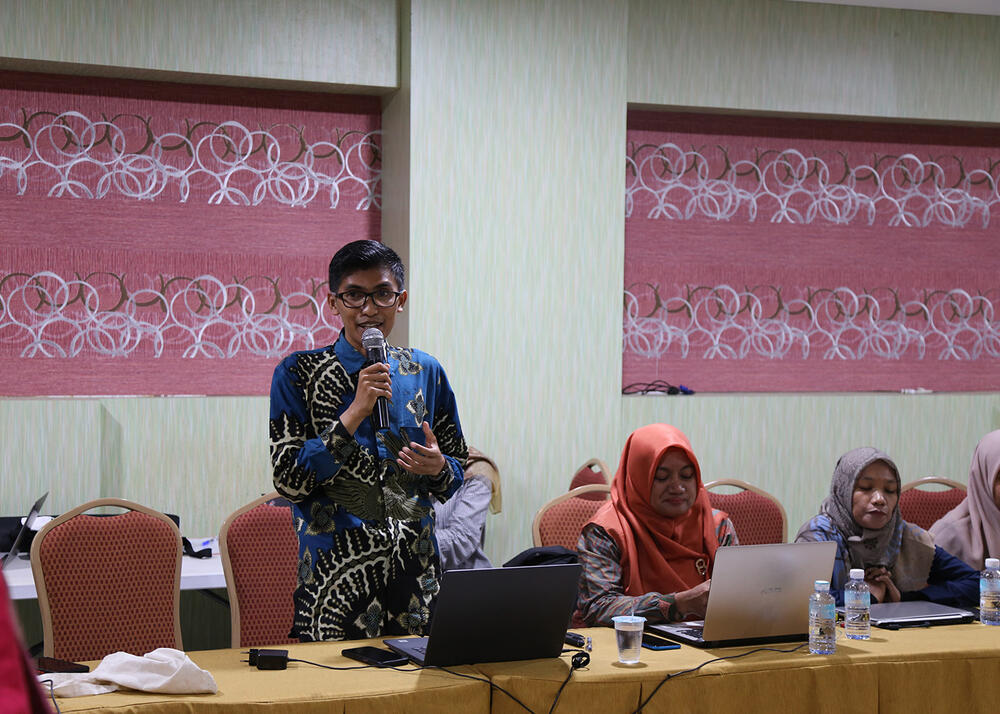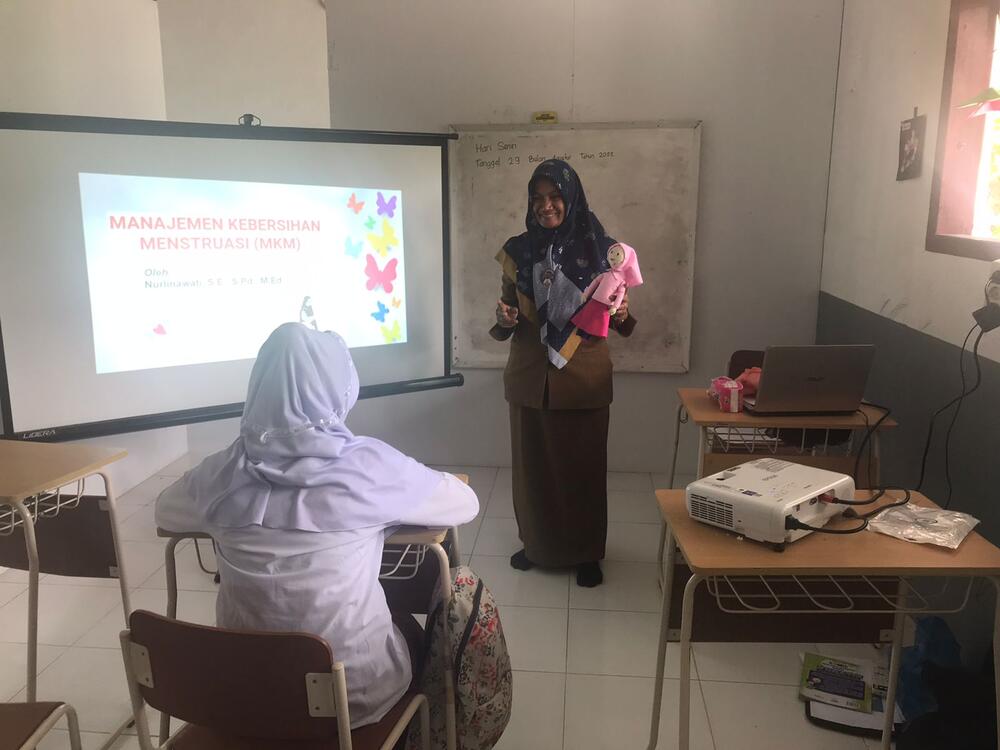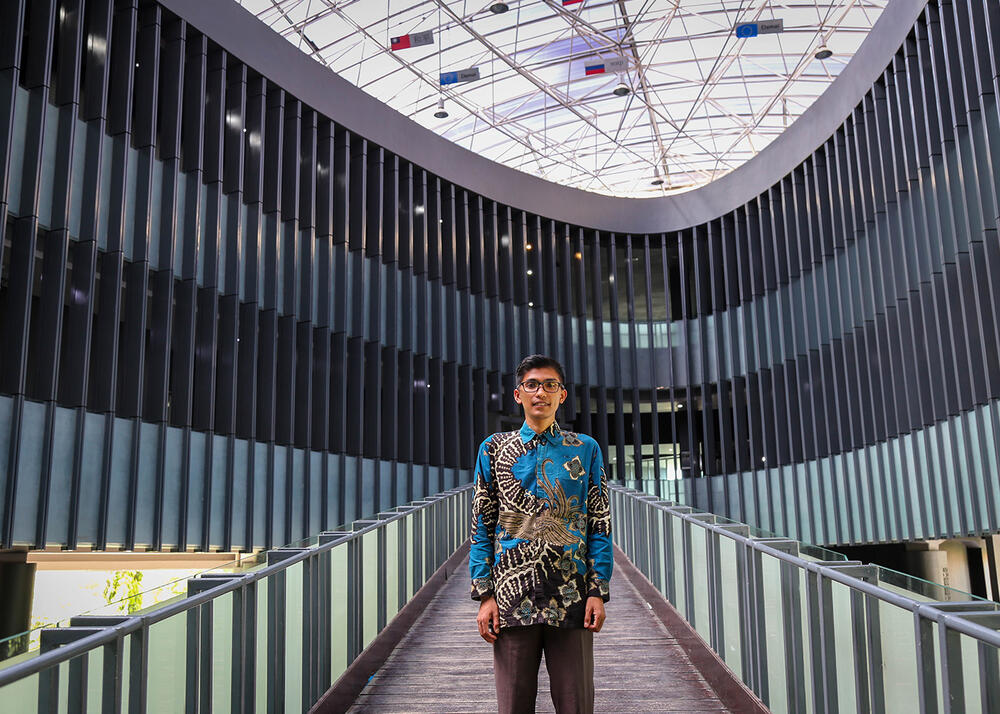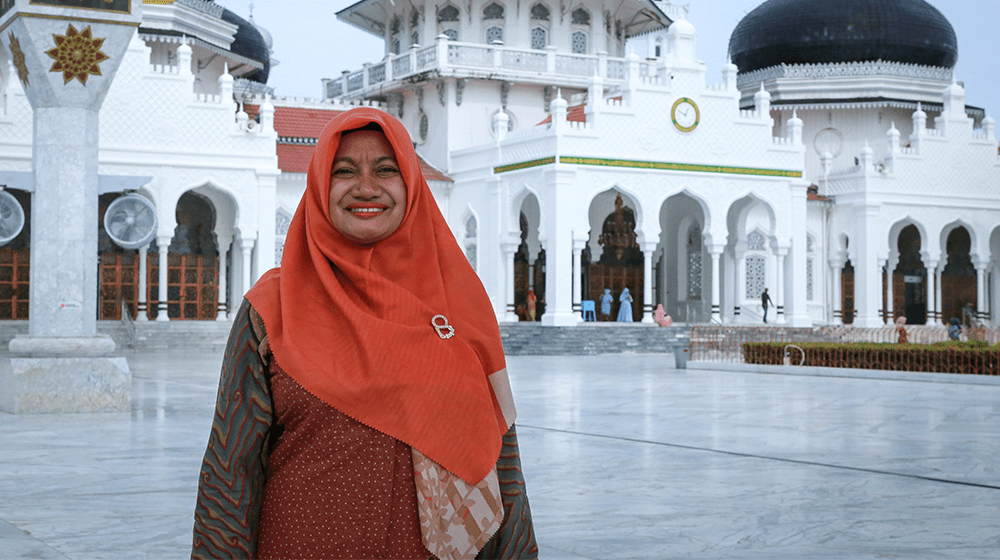Teaching is a challenging job that requires not just skills but also dedication and compassion. It takes special skills, dedication, and compassion to teach sexual and reproductive health to students with intellectual disabilities.
Nurlinawati, a 44-year-old teacher at the State Special Needs School (SLB) Bina Bangsa Syamtalira Aron, North Aceh Regency, and Win Jeroh Miko, a 33-year-old teacher at the State Special Needs School (SLB) Kebayakan Takengon, Central Aceh Regency, did not know right away that teaching was their calling.
Nurlinawati, also known as Lina, studied economics in college and used to work at a bank. She became interested in teaching after seeing teachers at a special needs school near where she lives. “After that, I participated in various training, some I had to pay for by myself, some I attended online. I was excited to teach,” Lina recalled. Her first experience teaching an autistic child motivated her to pursue this passion further. “I felt that what I did for the student was something good… So I went back to school to get another bachelor’s degree and a master’s degree in special needs education,” she said.

(Photo: Lucky Putra/UNFPA Indonesia)
Win, after graduating with a degree in English, had two options: teaching at a vocational high school or a special needs school. “I don’t know why I chose the latter, but when I taught the children, I felt happy and attached to them. That’s why I continue to teach at a special needs school until now,” he explained. After getting another degree in special needs education, like Lina, Win felt like he found his life’s calling. “I might not know what I wanted to do before, but after teaching I found what I had been looking for. My purpose is to teach children with special needs so that they can be independent.”
So, when they both had the opportunity to participate in a national training on adolescent sexual and reproductive health (ASRH) education for special needs school teachers, they immediately said yes. The training is organized by the Ministry of Education, Culture, Research and Technology in collaboration with the Ministry of Health, and facilitated by UNFPA with support from Global Affairs Canada, through the Better Sexual and Reproductive Health and Rights for All in Indonesia (BERANI) programme.
Adopting a multi-level marketing approach in the teacher’s training, UNFPA has trained a batch of Master Teachers, Partner Teachers, and Peer Teachers to deliver ASRH education in their respective schools. Various topics such as personal hygiene, puberty, prevention of sexual violence and gender-based violence, and the active involvement of parents and schools are the core topics of this program. This training aims to develop students’ knowledge and skills about SRH, so they are capable of protecting themselves from sexual harassment, HIV and sexually transmitted infections, as well as unwanted pregnancies.

(Photo: Nurlinawati’s personal documentation)
Lina and Win both admitted that they learned a lot from the training.
“Initially I was not sure what reproductive health actually entails… I finally learned that the scope is broad. It covers personal hygiene, puberty, protecting yourself, gender equality, and many more,” Lina said. Win echoed Lina’s testimony. “We have already taught our students to wash their hands as part of our self-development curriculum, but from this training, I personally just learned that reproductive health education is complex and includes personal hygiene,” he said. “After teaching materials about puberty, my students started to open up about the issues they faced. Additionally, they started to care and be responsible for their reproductive health,” he continued.
“The training was very useful for my students. Before, they had a hard time even just to identify the names of their body parts,” Lina recounted. “I didn’t even know that you have to change menstrual pads every 4 hours,” she continued.
Today, not only have her students learned about menstrual hygiene, they can also overcome their embarrassment to discuss menstruation and wear their own menstrual pads. “Sometimes students would feel ashamed, especially those aged 14 years or older, because they didn’t know how to wear menstrual pads correctly,” Lina said. From the training, she became inspired to come up with new methods to make teaching more effective. “After reading some references, I had the idea to make a ‘cuda’ doll. ‘Cuda’ is a word in the Acehnese language that means ‘sister’,” Lina elaborated. “So by using these tools, students’ interest is piqued… They wanted to know more… We continued training students to fit the menstrual pad correctly in their underwear using the ‘cuda’ doll, until the students are capable of using it on their own.”
For Win, the training helped him break down barriers to discuss sensitive matters with his students and their parents. “A challenge I faced was using terms considered to be taboo such as ‘vagina’ and ‘penis’ even though students need to learn them,” he said. Facing resistance in the beginning, he had to continuously make the students and parents understand the importance of learning about reproductive health. “After time goes by, the resistance has been minimized. Today I still teach reproductive health in my class, and even have reproductive health pictures and posters all over the walls,” he said.

(Photo: Lucky Putra/UNFPA Indonesia)
ASRH education also provides students with the knowledge they need to protect themselves from gender-based violence. “One of the reasons why reproductive health education is important is to teach the students to protect themselves,” Win said. “We have heard several times that some students have experienced sexual harassment.. They don't understand that no one should touch certain body parts. So we teach students not to allow anyone to touch their body parts that are covered. In this case, I use role-playing,” Lina said.
Passionate and dedicated, Lina and Win have been awarded as the Outstanding Teacher (“Guru Berprestasi”) by the Aceh Provincial Office of Education for their innovative interventions in delivering ASRH education for students with intellectual disabilities.
“Students with intellectual disabilities have the same rights as us. There is no difference, be it access to education, the right to reproductive health education… the right to marry, or other rights. They’re the same,” Lina said firmly. “Providing such learning will improve their capacity not only for the time being, and not only for their family, but also for their own future,” she concluded.
“We need collaboration with parents, schools, the society, and the surrounding community in order to fully realize the rights of our students,” Win affirmed.
Rahmi Dian Agustino
Communications Analyst, UNFPA Indonesia


